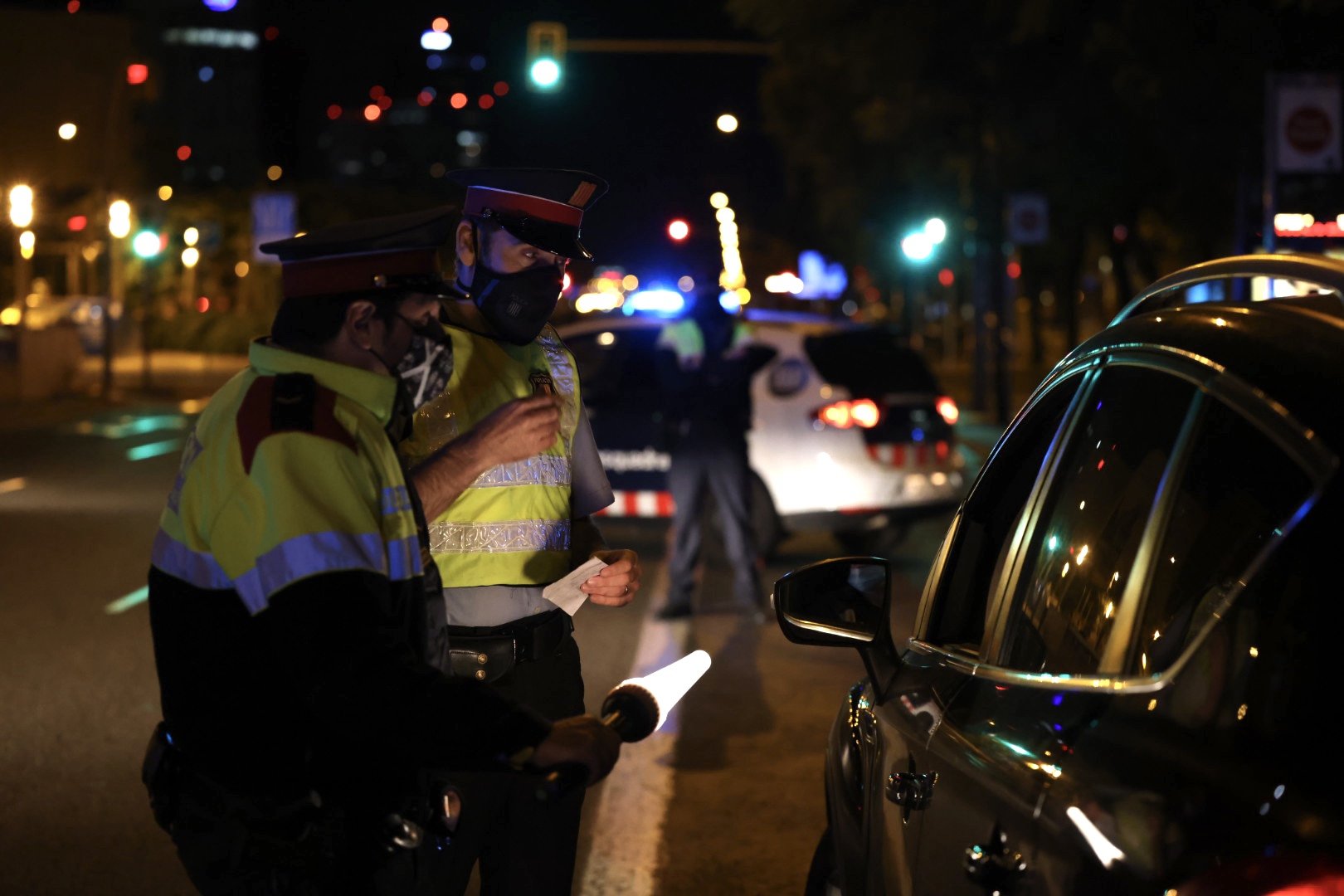It's now official: curfew. Starting this Friday night, six million Catalans will be forbidden to move around in public or drive on public roads between 1am and 6am, as a measure to combat the fifth wave of the coronavirus, the Delta variant wave. At 5pm, the Catalan government's official gazette urgently published the decree ordering the curfew, after the required authorization from the High Court of Catalonia arrived this morning. On paper, the decree says that the curfew measure will apply for just seven days. However, president Pere Aragonès himself has already announced that it will continue for several weeks. In fact, executive sources estimate it could be in force until mid-August.
The return of the night-time curfew initially affects - during this first week - 161 Catalan municipalities. The full list can be consulted by scrolling down this article. Of these towns, 147 of them have populations of over 5,000 and and an IA7 (cumulative incidence over the last 7 days) of 400 or more Covid-19 new cases per 100,000 inhabitants; the other 14 municipalities are included out of geographical necessity as they are surrounded by affected municipalities.
The curfew is expressed in the text as follows:
- It is forbidden to make any journeys or circulate on public roads between 1am and 6am.
The exceptions
As during the previous state of alarm and curfew, there is a list of exceptions for "essential journeys", which must be duly justified and accompanied by the Generalitat's certificate of self-responsibility (available in English, Catalan and Spanish on this page). The cases excluded are the following:
- Urgent health care, urgent veterinary care or urgent need to go to the pharmacy, which must be the closest one to my home.
- Journey to and return from workplace or other travel required for work reasons (including travel for professional or duly accredited volunteer staff duty to provide essential, health and social services).
- Return home from cultural and sporting activities, convenience stores, commercial establishments attached to petrol stations, restaurant services, including pick-up and drop-off services, games rooms, casinos and bingo halls, in accordance with Resolution SLT / 2212/2021, of 13 July.
- Care of minors, the elderly, dependents, the disabled or the especially vulnerable for unavoidable reasons (including travel for the needs of people with behavioural disorders, disabilities or illness that require outside activity for their emotional or physical well-being, when duly justified by health or social service professionals with the corresponding certificate; it also includes travel needed to pick up and care for minors where the parents are separated, divorced or residing in different places).
- Urgent appearance before a judicial body.
- Return to your usual place of residence after having done any of the permitted activities detailed above.
- Caring for pets taking pets for a walk for the minimum time necessary, and always individually, between 4am and 6am.
- Force majeure or other situation of justified need.
As well, during the hours when mobility is restricted, vehicles can be used for the trips permitted under these exceptions. Journeys that pass through or cross the territorial scope of the municipalities under curfew are permitted as long as the origin and destination are outside any of them. Likewise, circulation is always allowed when it comes to transport of goods.
The municipalities
The list of affected municipalities, which includes the largest cities in Catalonia such as Barcelona, L'Hospitalet, Badalona, Terrassa and Sabadell, will be reviewed on a case-by-case basis every seven days. If the evolution of the pandemic improves and drops below an IA7 of 400 cases per 100,000 people, the affected city or town will be able to lift its curfew. The same will happen in reverse. The weekly review will also monitor all other municipalities that have so far avoided night-time closure. If incidence rates increase above the critical level, they will come under a curfew in the following review.
Here is the searchable list of the 161 municipalities affected:
Combatting 'botellons'
The priority objective of the measure - which has been admitted by the leading Catalan government officials, is to combat the practice of botellons and booze parties organized in public spaces after bars close. Since Thursday, the closure of all leisure, culture, leisure and sports activities has been required at 12:30am nightly throughout Catalonia. Now, the curfew decree adds that members of the public must not arrive home later than 1am and that, therefore, if someone leaves a cinema, theatre, concert and has to return home, they will have only half an hour.
With the limitation of night mobility, says this Friday's decree, "the aim is to reduce social interactions that occur at night as these are the most frequented by the age groups with the highest incidence of the disease." The Catalan government bases its plan on the premise that "restrictions on nightlife establishments may lead to social interaction moving to public spaces where people without interpersonal distance and without masks group together in order to consume, which is the activity known as botellot. These spaces, although open-air, also become important focuses of spread of the virus, especially when the incidence of contagion is very high, as it is in Catalonia, and the possibilities for asymptomatic infected people to interact are high".
When Spanish PM Pedro Sánchez imposed the curfew through the state of alarm in October 2020, the initial duration expected was fifteen days. It was finally extended for six and a half months, until May 9th this year.
Below, the resolution enforcing the curfew, as published this Friday afternoon (in Catalan):
In the main image, a traffic check during the curfew. / S. Alcazar

